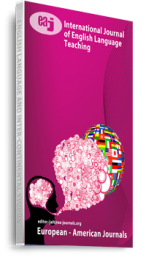This second-cycle action research study examines the effects of cultivating social, cognitive, and teaching presence on the productive skills and perceptions of English language learners (ELLs) in virtual learning environments (VLEs). Within the context of King Abdulaziz University’s (KAU) Foundation Year English program, this research examines the challenges associated with online engagement and the quality of student-produced materials in the post-COVID-19 era. Following Norton’s (2009) ITDEM action research model, the researcher, in their capacity as an embedded practitioner, engaged in collaborative work with 76 ELLs (a subset of 30 for core activities and 4 for interviews). Data collection methods included questionnaires (n=30), Blackboard posts (n=47), Flip videos (n=19), and semi-structured interviews (n=4). The analysis employed descriptive statistics, second-language learners (L2) error analysis, and thematic analysis, drawing upon the SOLO Taxonomy (Biggs & Collis, 1982) and the Community of Inquiry (CoI) framework (Garrison et al., 2000). The study demonstrates that ELLs viewed VLEs favourably, exhibiting increased comfort and improved communication skills as a result. Although the quality of posts varied and some instances of plagiarism were observed, Flip videos displayed a demonstrably higher level of originality and intellectual depth. Examination of errors indicated systematic difficulties for L2. ELLs’ reflections revealed prevalent themes of power, complex online roles, and a yearning for meaningful online pedagogical experiences. This research highlights the crucial role of teaching presence in fostering both cognitive and social engagement with presence, thereby supporting the implementation of constructivist pedagogical strategies within online English as a Foreign Language (EFL) environments. A discussion of the impact on KAU’s e-learning strategies and future action research initiatives is provided.
Keywords: Action Research, English language learners, Power, community of inquiry, flip, presence, solo taxonomy

